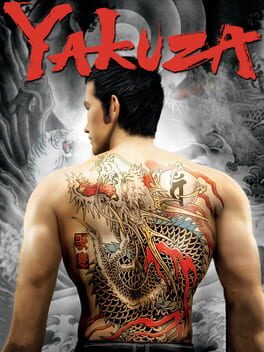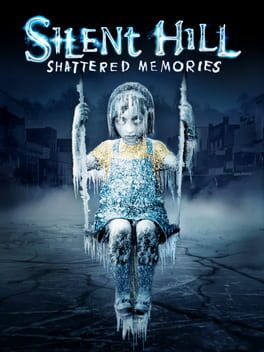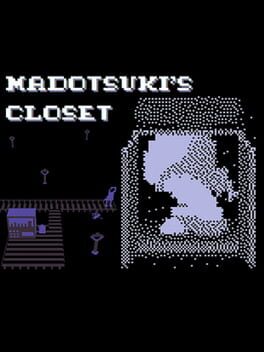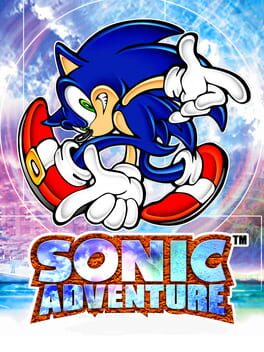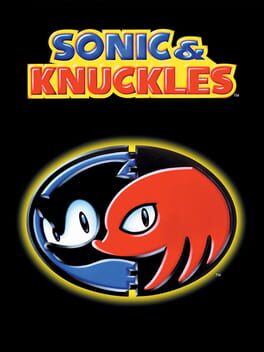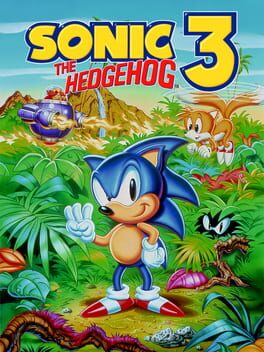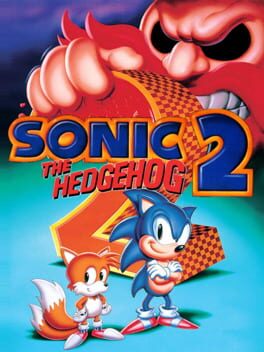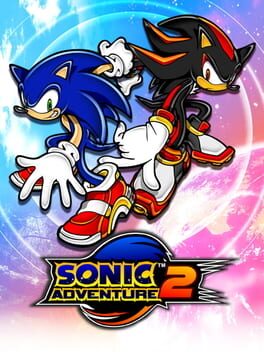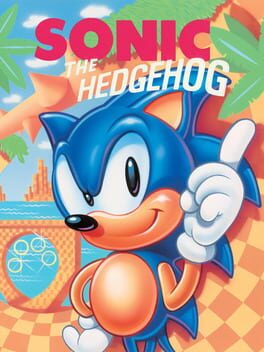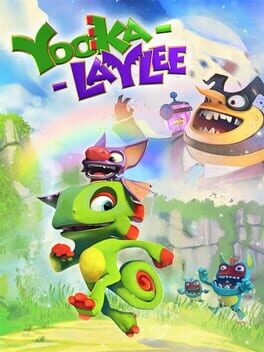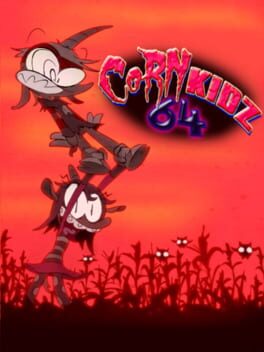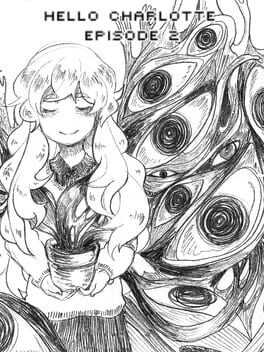boopus
2005
The stark contrast between the English dubs "You fucking piece of shit! You're fucked if you think you can fuck my shit up!" and the otherwise slow-burn crime drama plot, I choose to believe, is the origin point for the insane tonal dichotomy the rest of the series is famous for. Either that or Majima being a fucking lunatic.
Actually a pretty amazing game, and can only assume it's hard-to-describe distance from the first four is why it's rated so much lower. There are aspects here I believe to be straight-up more effective than any other Silent Hill, then there are things that are entirely absent, like the horror and combat. I think this is the first time I wished that this wasn't a video game or didn't have to be a Silent Hill, for the enhanced freedom to drink up the environment made the exploration segments feel like watching a Lynch film. Having an American team, to me, made the environment genuinely feel American. I've been to places that look exactly like these locales! I can fill in their smells and see the phantoms of where people would be. The decay and desolation felt more real to me, more effectively liminal. Other than the shitty reveal, this may also be the best-written Silent Hill (dialogue and character-wise, the semiotics were weak). I spent the whole game speculating Harry's role, thinking he abandoned his daughter and ultimately destroyed both of them. I thought for a bit that Dahlia was Cheryl at her absolute lowest, hooking up with her father without either realizing it. Shit left a lot of room for speculation, and I really wish they didn't lay all their cards out. All these broken women coming in and out of Harry's life, all of which you get to choose if you be creepy towards or respect certain boundaries, I felt was building towards a greater reveal. The ice-otherworld sequences I could've done without. By the second time, it had already become confusing and unmemorable. Luckily they don't take up that much of the game. The atmosphere really is such a boon to making the experience feel terrific. There were a few points where I just stared at the side of a building, letting Best Game Composer work his magic on me. I read every sign the PS2 gave a decent resolution to and got disappointed every time I accidentally progressed before getting to check every single corner for details. What else... Michelle and Dahlia had killer fits, and apparently they change off your behaviour? Really cool. Also a little disappointing that all the therapy mini-games just led to a pretty general ending and a meaningless astrology reading, but I don't know how much was reasonable to expect. They were engaging, which is the best I can ask for. I'd heard it did a lot more with it's psychology mechanics, and was expecting it to, than it actually felt like it did. The ways it does utilize them, however, I found very fun. By no means a masterpiece, definitely worth playing, at least to hang out in.
2021
[post-note: in the vein of the game, this "review" is a deeply personal and voyeuristic look into myself. it's alright, you can come in. after all, half of the five people that might see this have already looked away with this foreword, and no one consequential in my life will ever find this.]
I sobbed through pretty much every second of this. Brief respites of laughter cut the raw resonance of emotion I brought upon myself. But it's not art, is it? It's a voyeuristic journal entry, a thing not to be anything, a mere piece of appreciation that likely picked up traction accidentally through wearing the skin of a fan-game. It's a self-evaluation tucked away in the infinite somewhere of the wired world. Yet, it's identically the exact experience I seek from any piece of media: to be profoundly overcome by a contextualization or re-formatting of the self. My suffering is a tangible existence both in what goes said and unsaid within this space. It rears it's head, it fucks with me, it doubts me, it tells me exactly what I want to hear, it tells me what I left behind, what I wish I had. It speaks to me in all the ways I speak to myself. I haven't experienced art. I've experienced another human being. I looked through her past, her personas, her friends and her dreams, and yet selfishly in her, I only saw myself. I think a lot of the untenable, uncrossable bridge, the endless space that exists between our minds. I'm so scared to talk sometimes, though I know I have so much to say. I can't translate myself except through my words, yet civil standards, self-doubt and floating judgements cut my tongue and halt my pen. I want to transcribe my bridge. I want people to see beyond the body, the voice, the hobbies, the opinions, even the words, to express the rawest form of self, of the magical thing of self that I love and no one else can feel, and to still be loved as that thing, to nullify this whole social game we oppress ourselves with. Madotsuki's Closet was perhaps the closest I've ever felt to standing on someone else's bridge. Even with my closest friends, their physicality and our shared history of things other than the self makes me incapable of willing myself to cleanly pierce through them. I don't mean to imply some odd parasocial bond I have with the creator, for as I said, I stared into it's abyss and only saw myself. It's part of why I sobbed. Her introduction to transness through Yume Nikki with a "there are worse ways" became my exposure through anti-SJW YouTube content making disgusting one who could be so presumptuous and fetishistic to dare challenge the institution of gender. Her jokes and irony became my own mask for online engagement that I renew time and time again to appease the people who use this space as a playground for pleasure. Her messages with her friends became my own hollowness of a lifetime of cowering in fear of my true self, then finally overcoming it all to be met with "oh, cool". The young girl on the bench (and oh GOD did she crush me) became my own wishes to simply have been born different. She became my desire not to be trans or trying to be female, but just to have been born it with the privilege of not having to question. She became my unalterable skeleton oppressing me from the deepest recesses of my flesh. She became, at once, all from my childhood I was while also being all the hundreds of little signs I missed and didn't have the language to will or question. She became who I dressed up as or roleplayed under the covers or in my literal closet. She became my opting into silence to not hear my own voice, my tantrums after haircuts, my rejection of masculine hobbies, my starving myself to be shorter and more frail, my fiction writing to create worlds and characters to escape into, my longing for death as my body turned itself more and more uninhabitable with the loss of that childhood androgyny. She became the childhood and happiness and optimism and celebrated, babied, blissful ignorance that everyone seemed entitled to up until their teens, but that I felt I had been born without. I appropriated Bagenzo's literal dreams, and I feel dirty for it. I took them and imposed myself on them. I overwrote her, and I can replay her, share her, discuss her like a thing to be chewed, swallowed and shat out. Yet, in overriding her, I filled in the holes of myself. I paved the narrative of pursuit of traditional femininity that underlied my whole childhood. I bridged the gap between the art I enjoy and their reflections on the person I am. Much like Yume Nikki, much like the thousands of fan theories on it, I took someone elses dreams and projected myself on them, not until they made sense, but until I did. This was perfect, exemplary of the very things I want from life and art. Yet, what was it that I am considering exemplary? Is the game a perfect product, is Bagenzo a perfect writer, or is what I have taken in a perfect addition to my self? I think rankings disgust me now, as do all the arguing I've done to uphold opinions and all the art I've experienced for other people. I'm not going to bother answering... the void has listened long enough. Perhaps I've let one of you onto my bridge, or perhaps not. Perhaps I appear insane, self-indulgent, pretentious. That's all right, as long as my bridge exists for now in this magical somewhere. As for me, don't worry, I've made peace with most of this stuff. But something tells me you might not have seen "me" here, right? You saw whatever could be morphed into you. If art is to be defined as anything, perhaps it's that.
I sobbed through pretty much every second of this. Brief respites of laughter cut the raw resonance of emotion I brought upon myself. But it's not art, is it? It's a voyeuristic journal entry, a thing not to be anything, a mere piece of appreciation that likely picked up traction accidentally through wearing the skin of a fan-game. It's a self-evaluation tucked away in the infinite somewhere of the wired world. Yet, it's identically the exact experience I seek from any piece of media: to be profoundly overcome by a contextualization or re-formatting of the self. My suffering is a tangible existence both in what goes said and unsaid within this space. It rears it's head, it fucks with me, it doubts me, it tells me exactly what I want to hear, it tells me what I left behind, what I wish I had. It speaks to me in all the ways I speak to myself. I haven't experienced art. I've experienced another human being. I looked through her past, her personas, her friends and her dreams, and yet selfishly in her, I only saw myself. I think a lot of the untenable, uncrossable bridge, the endless space that exists between our minds. I'm so scared to talk sometimes, though I know I have so much to say. I can't translate myself except through my words, yet civil standards, self-doubt and floating judgements cut my tongue and halt my pen. I want to transcribe my bridge. I want people to see beyond the body, the voice, the hobbies, the opinions, even the words, to express the rawest form of self, of the magical thing of self that I love and no one else can feel, and to still be loved as that thing, to nullify this whole social game we oppress ourselves with. Madotsuki's Closet was perhaps the closest I've ever felt to standing on someone else's bridge. Even with my closest friends, their physicality and our shared history of things other than the self makes me incapable of willing myself to cleanly pierce through them. I don't mean to imply some odd parasocial bond I have with the creator, for as I said, I stared into it's abyss and only saw myself. It's part of why I sobbed. Her introduction to transness through Yume Nikki with a "there are worse ways" became my exposure through anti-SJW YouTube content making disgusting one who could be so presumptuous and fetishistic to dare challenge the institution of gender. Her jokes and irony became my own mask for online engagement that I renew time and time again to appease the people who use this space as a playground for pleasure. Her messages with her friends became my own hollowness of a lifetime of cowering in fear of my true self, then finally overcoming it all to be met with "oh, cool". The young girl on the bench (and oh GOD did she crush me) became my own wishes to simply have been born different. She became my desire not to be trans or trying to be female, but just to have been born it with the privilege of not having to question. She became my unalterable skeleton oppressing me from the deepest recesses of my flesh. She became, at once, all from my childhood I was while also being all the hundreds of little signs I missed and didn't have the language to will or question. She became who I dressed up as or roleplayed under the covers or in my literal closet. She became my opting into silence to not hear my own voice, my tantrums after haircuts, my rejection of masculine hobbies, my starving myself to be shorter and more frail, my fiction writing to create worlds and characters to escape into, my longing for death as my body turned itself more and more uninhabitable with the loss of that childhood androgyny. She became the childhood and happiness and optimism and celebrated, babied, blissful ignorance that everyone seemed entitled to up until their teens, but that I felt I had been born without. I appropriated Bagenzo's literal dreams, and I feel dirty for it. I took them and imposed myself on them. I overwrote her, and I can replay her, share her, discuss her like a thing to be chewed, swallowed and shat out. Yet, in overriding her, I filled in the holes of myself. I paved the narrative of pursuit of traditional femininity that underlied my whole childhood. I bridged the gap between the art I enjoy and their reflections on the person I am. Much like Yume Nikki, much like the thousands of fan theories on it, I took someone elses dreams and projected myself on them, not until they made sense, but until I did. This was perfect, exemplary of the very things I want from life and art. Yet, what was it that I am considering exemplary? Is the game a perfect product, is Bagenzo a perfect writer, or is what I have taken in a perfect addition to my self? I think rankings disgust me now, as do all the arguing I've done to uphold opinions and all the art I've experienced for other people. I'm not going to bother answering... the void has listened long enough. Perhaps I've let one of you onto my bridge, or perhaps not. Perhaps I appear insane, self-indulgent, pretentious. That's all right, as long as my bridge exists for now in this magical somewhere. As for me, don't worry, I've made peace with most of this stuff. But something tells me you might not have seen "me" here, right? You saw whatever could be morphed into you. If art is to be defined as anything, perhaps it's that.
1998
Unbelievable. At 21 years old, have I now become... a Sonic fan?
No, I'm backing out here. I know what comes next. Maybe one more, but it's too much for my poor little soul. Either way, this game fucking rocked (given, with a fair amount of mods, bug fixes and cheat codes). Rocked hard enough for me to get all 130 emblems.
I've been kindling a sort of obsession with the Dreamcast's aesthetic since playing Space Channel 5, as well as feeling this weird draw to it and the Saturn's seeming absence from the video game canon despite being somewhere aesthetically between the best parts of the SNES and PS2. There's something genuinely magic about the world Sonic Adventure creates, perfectly materializing that place in my mind where all the wonder about this era exists. The visuals scream video game in the most charming way possible that I almost have to fracture this era of gaming into a different medium from the hyper-reality of the current generation. Nonetheless, it's value as a space, a place to just hang out and run around in, supercedes to me the attempts to recreate worlds aiming at pure reality.
Every game needs an hub world with oversized geometry and chill music that you can do all sorts of tricks in. It's so bare-bones by modern standards, yet felt full enough, like a light meal between the soda-chugging levels. Emerald Coast, Icecap, Windy Valley and Twinkle Park, too, are just so cozy. Let me buy virtual real estate and build my video game home in one of them. It also brings so much logic to the structure of the world, incorporating zones from Sonic 2 & 3. There was an attempt to create a consistent world between games, with lore and development of both spaces and characters. It's really awesome and sucks to see that they already seemingly threw this out by Adventure 2. The familiar landmarks neither feel played out like many complain in modern titles of Green Hill Zone, and also make this a very earnest and tangible transition to 3D. This is an expanded 3D version of Sonic 3 & Knuckles. As much as people say 3D-o killed the Sonic star, I simply can't see it.
The lower difficulty and less floaty controls also just made everything so digestible. Outside of Big's campaign, Lost World and Hot Shelter, frustration was incredibly sparce in a genre of games where my blood often quickly boils. I was so willing to forgive a lot of what people dismiss this game for as a campy charm. Losing the weird face movements and canned voice acting honestly seems like a downgrade. Sonic doesn't feel corporate, he feels like a part of that era of liberal publishers allowing devs to fully play out their vision.
I'll admit the game sucks at points. Amy's campaign feels unnecessary, a tedious rehash through the most visually mundane levels. Big's B and A-Ranks are user-hostile to the point where I cursed out the God who brought this monster into the world and whether they had it play-tested. The final boss stinks. Knuckles' A-Ranks, too, I had to cheese. But breaking this shit in two almost seems like part of it's operation. Have you played Tail's campaign? I would laugh like a maniac, calling Sonic a c*nt as I twirled my ass through walls and into unrendered skyboxes (I love everything about Tails in this game, easily my favourite character). Same with trying to get A-Ranks with Sonic and exploiting the wonky physics to skyrocket yourself over pockets of abyss. As for Knuckles and Gamma, they are both upgrades over the feel of the same mechanics in the sequel, which was such a welcome surprise. I also didn't expect the Chao Garden to be already in full form. Force-feeding my little fella Chao Fruits between every level, getting pissed at her for prancing around with a big grin on her face as I tried to commodify her for the last few emblems with animal duping, the forgotten level one sibling that sat in the corner as it's brethren swelled into a machine of physical function... we had good times together.
While I wouldn't call Adventure underrated, I would call it over-hated. For my money and aesthetic sensibilities, I know it simply can't get much higher for this franchise. It's a passionate, inspired adventure through a world that is the pinnacle of video-gaminess, oozing a sincere charm in it's brokenness that beats out the sterility of today's half-bakes.
No, I'm backing out here. I know what comes next. Maybe one more, but it's too much for my poor little soul. Either way, this game fucking rocked (given, with a fair amount of mods, bug fixes and cheat codes). Rocked hard enough for me to get all 130 emblems.
I've been kindling a sort of obsession with the Dreamcast's aesthetic since playing Space Channel 5, as well as feeling this weird draw to it and the Saturn's seeming absence from the video game canon despite being somewhere aesthetically between the best parts of the SNES and PS2. There's something genuinely magic about the world Sonic Adventure creates, perfectly materializing that place in my mind where all the wonder about this era exists. The visuals scream video game in the most charming way possible that I almost have to fracture this era of gaming into a different medium from the hyper-reality of the current generation. Nonetheless, it's value as a space, a place to just hang out and run around in, supercedes to me the attempts to recreate worlds aiming at pure reality.
Every game needs an hub world with oversized geometry and chill music that you can do all sorts of tricks in. It's so bare-bones by modern standards, yet felt full enough, like a light meal between the soda-chugging levels. Emerald Coast, Icecap, Windy Valley and Twinkle Park, too, are just so cozy. Let me buy virtual real estate and build my video game home in one of them. It also brings so much logic to the structure of the world, incorporating zones from Sonic 2 & 3. There was an attempt to create a consistent world between games, with lore and development of both spaces and characters. It's really awesome and sucks to see that they already seemingly threw this out by Adventure 2. The familiar landmarks neither feel played out like many complain in modern titles of Green Hill Zone, and also make this a very earnest and tangible transition to 3D. This is an expanded 3D version of Sonic 3 & Knuckles. As much as people say 3D-o killed the Sonic star, I simply can't see it.
The lower difficulty and less floaty controls also just made everything so digestible. Outside of Big's campaign, Lost World and Hot Shelter, frustration was incredibly sparce in a genre of games where my blood often quickly boils. I was so willing to forgive a lot of what people dismiss this game for as a campy charm. Losing the weird face movements and canned voice acting honestly seems like a downgrade. Sonic doesn't feel corporate, he feels like a part of that era of liberal publishers allowing devs to fully play out their vision.
I'll admit the game sucks at points. Amy's campaign feels unnecessary, a tedious rehash through the most visually mundane levels. Big's B and A-Ranks are user-hostile to the point where I cursed out the God who brought this monster into the world and whether they had it play-tested. The final boss stinks. Knuckles' A-Ranks, too, I had to cheese. But breaking this shit in two almost seems like part of it's operation. Have you played Tail's campaign? I would laugh like a maniac, calling Sonic a c*nt as I twirled my ass through walls and into unrendered skyboxes (I love everything about Tails in this game, easily my favourite character). Same with trying to get A-Ranks with Sonic and exploiting the wonky physics to skyrocket yourself over pockets of abyss. As for Knuckles and Gamma, they are both upgrades over the feel of the same mechanics in the sequel, which was such a welcome surprise. I also didn't expect the Chao Garden to be already in full form. Force-feeding my little fella Chao Fruits between every level, getting pissed at her for prancing around with a big grin on her face as I tried to commodify her for the last few emblems with animal duping, the forgotten level one sibling that sat in the corner as it's brethren swelled into a machine of physical function... we had good times together.
While I wouldn't call Adventure underrated, I would call it over-hated. For my money and aesthetic sensibilities, I know it simply can't get much higher for this franchise. It's a passionate, inspired adventure through a world that is the pinnacle of video-gaminess, oozing a sincere charm in it's brokenness that beats out the sterility of today's half-bakes.
1994
1994
Dare I say it? I not only enjoyed a Sonic game to the credits, but this may very well be the best 4th gen 2D platformer? It's got continuity of setting, the soundtrack is packing consistent heat and it's the pinnacle of that 90's nostalgia pizza-and-soda arcade-carpet macintosh-plus aesthetic in gaming. Best of all, it saves every world, so I didn't have to use the PS2 save states as much! Don't get me wrong, it has it's hiccups (that one fucking barrel...) but they somehow feel more like the devs fucking with you than actual bad design. Sonic has fully come into his own here and I can finally understand how this blue rat became the childhood icon he is.
1992
Better than the first game for sure, but I swear every zone got progressively less fun and well-designed. Was having a good enough time the first five or six worlds, but Metropolis tested my patience so hard that the rest of the game just didn't have the steam to bring back up. Probably didn't help I played it on PS2, so I had to wait 15-20 seconds each time I died, not wanting a game over. Self-replicating impatience.
2001
Only through time and experience can one gain the sagacity to realize they are a dope with worthless opinions. For four years, when asked the worst video game I've ever played, my default response would usually be this. I loathed it, based mostly on the fact it pissed me off. I remember finding Sonic and Knuckles unplayably jank, the levels all sloppily designed and the rest just generally unfun. The biggest problem in retrospect is that I went in with years of hearing every YouTuber I grew up with disparage the series. In my head, it was nothing but a disappointment factory from a failure company in the years where the Mario Galaxy brothers were collectively still my favourite game of all time. Hell, I don't think I'd have ever even played the damn thing if it wasn't for that Snapcube fan-dub. My opinion, as much as I hadn't realized it, was psychologically pre-emptive, established on experiences which weren't my own. Naturally, the one Sonic game I've played had to reflect that mediocrity. Then, now that I had a position, I found it bombarded by fans of the games or witnessed joy over a game I detested. Eventually, I began to respect the music and, having not touched the Chao garden my first time around, always heard that it was the best part and had to respect it. Originally despising the cast, I came to concede that most of them are quite lovable after playing Murder of Sonic the Hedgehog (though I still sort of detest Sonic's character). I watched videos by hazel and KingK, conceding more and more while still holding arrogantly on to my view out of mere tenacity and the gripping comfort of having a scapegoat. Something in me needed a game to be the worst, to be a 1/10 point of reference by which all could be weighed in displeasure.
Recently, I've been holding off on purchasing games, instead completing or achievement hunting in games that have sat on the backlog long enough to be fatal. Having only the achievements for the Hero Story and First Level, the scent of the burning witch beckoned me. I'd dip my toes in the Chao Garden, perhaps give a couple of the Villain Story levels the old college try. Out of what I can only assume to be trauma from my first run-in with Miss Adventure 2, I looked into graphics and physics mods, admittedly indulging in a few cheats to hasten and make less punishing my return. After some troubleshooting amidst which I complained of the game's awfulness, off I went. While feeling out the Chao Garden, I began to come to a realization. Immediately, the little details charmed me as I scanned the setpieces in the Chao's kindergarten. The mistranslations echoed the charm of the obscure B-titles I'd been playing. The music, textures and skyboxes encapsulated this perfect childhood feeling. The Chao system shocked me in it's complexity, and the damn things were so cute it made me uncomfortable. Between all that and my character of choice, Eggman, hobbling at mach 10 between the homely Japanese schoolhouse and serene Windows screensaver, I was having fun. Not planning to wait around for 3 hours for my two unleveled Chao to develop into an angel and devil, I tried my hand at the Villain Story. I constantly found myself stuck by odd or misremembered mechanics (seriously, why does this game have a power-up system instead of having all the moves from the start?), but it wasn't as unplayable as I remembered. At the very least, getting to bring little treats and creatures back to my baby Chao's after each stage made it all feel worth it (like a true parent enduring the hardships of capitalism, or in this case, Sonic gameplay). On the level White Jungle, however, a change took hold. I was... having a blast. The level flowed incredibly smoothly and intently. The shortcomings of the game began to feel like my own. I began resetting the stage when I died to keep my ring count up, feeling each mistake was my own. I zipped through the stage, tasting each alternative path and feeling out the little secrets for the most rings possible. After finally clearing it, I was awarded with an A-rank. My first playthrough, I got all D's and E's, but this... this felt good. The level felt good. The game felt good. I stayed up until 8AM not only clearing the rest of the Villain story, but clearing the whole Hero story again (no cloud saves, thanks Sega...), collapsing before reaching the final part. Meanwhile, my Chao were around level 40 and I was fueled by an urge to play more and more of the game, weighing whether I would watch my Chao into adulthood or chip my way up to 90 emblems. The last level stunk, and the last boss wasn't nearly the Pinnacle of Gaming hypefest I'd seen it sold as, but what I must note is this itching desire I have, even now, to keep playing. I want to play more, see everything this game has to offer, to love my Chao through each racing cup and to hoard those A-ranks. While a lot of the game is rough to play through and quite often unfun, these alone are not the marks of a 1/10 game.
Be it absolutely drinking up the aesthetics and music, my friend mocking me in Steam DMs or the powerful maternal instinct I developed for, now admittedly, probably the cutest video game character of all time, the "worst game" has merits that I feel like a cretin for trying to take away from people in outputting and arguing my hatred. The moral of all of this self-indulgent rambling is that rating games sucks (hence my lack of stars, though if I must put a number to it now, 3 stars, but that's far too vague given the range of quality). It's a practice locking our value of an object on one experience in one place. I detested Evangelion until I rewatched it at the height of my depression and loneliness, and now it's in my top 5. I dislike very few games, so unless the game is irredeemably degenerate (like I judged the lone king of my half-star rankings, Nekopara), games are art and art is always worth protecting no matter it's quality. A reading for my Moral Philosophy class has taught me that rose-tinting the interior world often extends its effects into the external world, and no doubt this ought to be applied each time a beloved game gets us heated. Give me your buggy, your jank and your low-budget and may we dance the nights away not as enemies, but hand-in-hand for this limited life we have.
Recently, I've been holding off on purchasing games, instead completing or achievement hunting in games that have sat on the backlog long enough to be fatal. Having only the achievements for the Hero Story and First Level, the scent of the burning witch beckoned me. I'd dip my toes in the Chao Garden, perhaps give a couple of the Villain Story levels the old college try. Out of what I can only assume to be trauma from my first run-in with Miss Adventure 2, I looked into graphics and physics mods, admittedly indulging in a few cheats to hasten and make less punishing my return. After some troubleshooting amidst which I complained of the game's awfulness, off I went. While feeling out the Chao Garden, I began to come to a realization. Immediately, the little details charmed me as I scanned the setpieces in the Chao's kindergarten. The mistranslations echoed the charm of the obscure B-titles I'd been playing. The music, textures and skyboxes encapsulated this perfect childhood feeling. The Chao system shocked me in it's complexity, and the damn things were so cute it made me uncomfortable. Between all that and my character of choice, Eggman, hobbling at mach 10 between the homely Japanese schoolhouse and serene Windows screensaver, I was having fun. Not planning to wait around for 3 hours for my two unleveled Chao to develop into an angel and devil, I tried my hand at the Villain Story. I constantly found myself stuck by odd or misremembered mechanics (seriously, why does this game have a power-up system instead of having all the moves from the start?), but it wasn't as unplayable as I remembered. At the very least, getting to bring little treats and creatures back to my baby Chao's after each stage made it all feel worth it (like a true parent enduring the hardships of capitalism, or in this case, Sonic gameplay). On the level White Jungle, however, a change took hold. I was... having a blast. The level flowed incredibly smoothly and intently. The shortcomings of the game began to feel like my own. I began resetting the stage when I died to keep my ring count up, feeling each mistake was my own. I zipped through the stage, tasting each alternative path and feeling out the little secrets for the most rings possible. After finally clearing it, I was awarded with an A-rank. My first playthrough, I got all D's and E's, but this... this felt good. The level felt good. The game felt good. I stayed up until 8AM not only clearing the rest of the Villain story, but clearing the whole Hero story again (no cloud saves, thanks Sega...), collapsing before reaching the final part. Meanwhile, my Chao were around level 40 and I was fueled by an urge to play more and more of the game, weighing whether I would watch my Chao into adulthood or chip my way up to 90 emblems. The last level stunk, and the last boss wasn't nearly the Pinnacle of Gaming hypefest I'd seen it sold as, but what I must note is this itching desire I have, even now, to keep playing. I want to play more, see everything this game has to offer, to love my Chao through each racing cup and to hoard those A-ranks. While a lot of the game is rough to play through and quite often unfun, these alone are not the marks of a 1/10 game.
Be it absolutely drinking up the aesthetics and music, my friend mocking me in Steam DMs or the powerful maternal instinct I developed for, now admittedly, probably the cutest video game character of all time, the "worst game" has merits that I feel like a cretin for trying to take away from people in outputting and arguing my hatred. The moral of all of this self-indulgent rambling is that rating games sucks (hence my lack of stars, though if I must put a number to it now, 3 stars, but that's far too vague given the range of quality). It's a practice locking our value of an object on one experience in one place. I detested Evangelion until I rewatched it at the height of my depression and loneliness, and now it's in my top 5. I dislike very few games, so unless the game is irredeemably degenerate (like I judged the lone king of my half-star rankings, Nekopara), games are art and art is always worth protecting no matter it's quality. A reading for my Moral Philosophy class has taught me that rose-tinting the interior world often extends its effects into the external world, and no doubt this ought to be applied each time a beloved game gets us heated. Give me your buggy, your jank and your low-budget and may we dance the nights away not as enemies, but hand-in-hand for this limited life we have.
1991
Incredible this generic 3rd gen platformer managed to become the titan it did, especially with a slogan of "gotta go fast". If the game is built on speed, why is every single stage designed to be explicitly anti-speed? It's so baffling and it's almost impressively creative how many means the devs concocted to halt or fuck with your momentum. After just playing Adventure 2 and starting to get how the stages have a flow to them if you know what you're doing, I question if I'm just bad or if that just wasn't in mind at all. I hate that it uses the arcade life system, demanding save states. I hate that half the OST is like 4 looping measures when the half that isn't bangs. I hate how you can't walk up slopes or comfortably spin dash or dispatch certain enemies. The game is passable, but so opposite of what I would have expected a 2D sonic game to be after all these years.
An incredibly realistic depiction of getting back-seated (and the tasteful usage of psychosis and implementation into the mechanics is cool, too, I guess). Mental illness is used both sympathetically and in a way that doesn't degrade or disempower the one experiencing it, which shouldn't be as rare as it is. Using the medium of games and binaural sound as a means of immersing the player in a mindset of one afflicted by psychosis is a brilliant usage of the medium. An absolute visual feast (outside the Sea of Corpses, which looks like a set from a Dread X game) with absolutely stellar animation and cinematics for a last-gen game. I love the look of the illusionary people, which I spent the whole game trying to determine if they were overlayed video recordings or insanely good 3D models. Senua staring straight into the player's soul during internal monologues and the way the voices would get hijacked gave the game an eerie edge I wasn't expecting. The sound design absolutely sold it, as well as the excellent voice performances. As a cinematic, creative and narrative work, Hellblade is excellent. However, Hellblade is also an Action-Puzzle video game. There's a lot of mid-'10s AAA weird design, like scale > density and an over-reliance on invisible walls that bogged down the experience a little. While a good length, there's some sections that are jarring or straight-up unfun that should have been cut entirely (the blindness and labyrinth, for example). I get why they're there artistically, and perhaps games shouldn't need to be fun, but several chunks of the game were just too drawn out for my taste. The game also has an interesting variety of serviceable, but underwhelming mechanics that make it quite clear that the identity was a cinematic experience at its core. The combat and navigation were fun enough, and how it balanced these two identities reminded me of a modern ICO. There's clearly a lot of artistic talent that went into this, so I don't want to critique it too harshly, but with games getting longer and longer, I've started to grow jaded to padding. I look forward to the sequel and hope they have the time and resources now to clean things up.
2017
2022
It's a great remake, but the story and gameplay is middling. The combat is way too easy and requires very little thought and absolutely needed an MP system to prevent me from cheesing several fights, especially considering you get Full Restored after every battle. I appreciate how the storylines are homages to the tropes of popular movies and games. Reference culture is cool when you get it, but creates a cliche and dissatisfying stand-alone product. The main problem I take is that it didn't out-western, out-Mecha or out-2001 the original properties, nor subvert them. I've played or seen close to all of these influences, so I didn't gain anything from playing Live-A-Live in my understanding of how to tell these stories well. It makes passable, but functionally worse choices than the original properties made, which makes me question the creator's intent beyond paying homage. I don't dislike the game at all: it's fun, cute and pretty, and the bite-sized narrative structures made it very digestable and paceable in a way I think a lot of chunky RPGs could benefit from. Those just aren't the reasons that I play RPGs, it's two weak points are. As is, I can't but help feel that it was a testing ground for the much stronger and more polished ideas of Chrono Trigger.
2023
Someone needs to tell me to stop buying precision platformers, because they consistently make me miserable. It's a solid platformer, just don't expect much level variety. Personally not a big fan of the grungy cartoon aesthetic, but if that's your thing, maybe give this a try. The anxiety tower had me wanting to off myself with all the horrendous camera angles aggravating already tight jumps.
The goal of any piece of art is to invoke an emotional response in it's viewer/reader/player, be it simple pleasure, self-reflective melancholy or militarizing hatred. Hello Charlotte, in being an opaque piece of traumacore, chooses to invoke desolate depression (or so my experience indicates). It's incredibly intelligent, blunt and well-executed as a piece of visual and literary art, yet it chooses with this talent to be unabashedly nihilistic. While I am unsure how the trilogy concludes, Episode 2 as a standalone piece is a work made to plunge it's player into a hopelessness, listlessness and determinism. Our darling pale princess is cursed with an incurable illness, swathes of bullies, dozens of gruesome game-ends and divine reconstructions of her flesh, all of which she (and us as her captors) force her to endure. The most credence is granted to the ideologies of C and Frei in their influence over Charlotte, and it forces an incredibly heavy philosophical onus onto both her and us, the player. While I would recommend this game off the merits of it's art-style and witty writing, these aspects of the experience cannot be isolated from it's spite for life and distrust for others. I do wish the creator the best if such thoughts truly are a reflection of their beliefs and the intentionality of their art. Hello Charlotte isn't edgy or scary, it's just occasionally painful. The cosmic gore and mathematical jokes made me fall in love, but my weekend was thrown into an absolute slump as the price of admission. Play at your own risk.
2020
